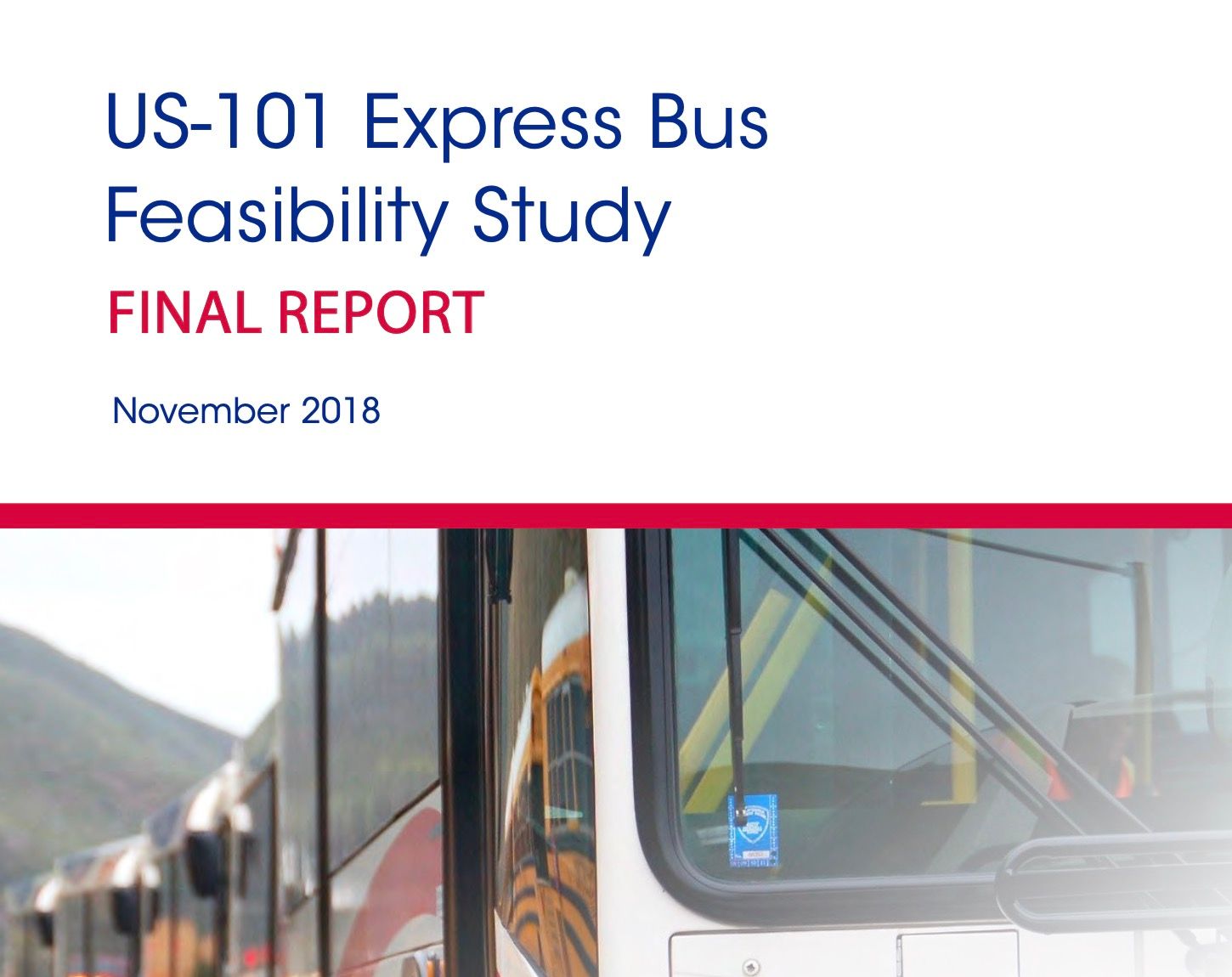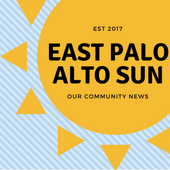EPX is the second SamTrans US-101 express bus. This is a big deal! I dived into the 2018 SamTrans US-101 Express Bus Feasibility Study and wanted to share my learnings here.
It has been 3 weeks since I first took the EPX, and I have been busy meeting with SamTrans and reading 200-page studies to get more context on future express buses and BRT's (bus rapid transits). I wanted to share my learnings here.
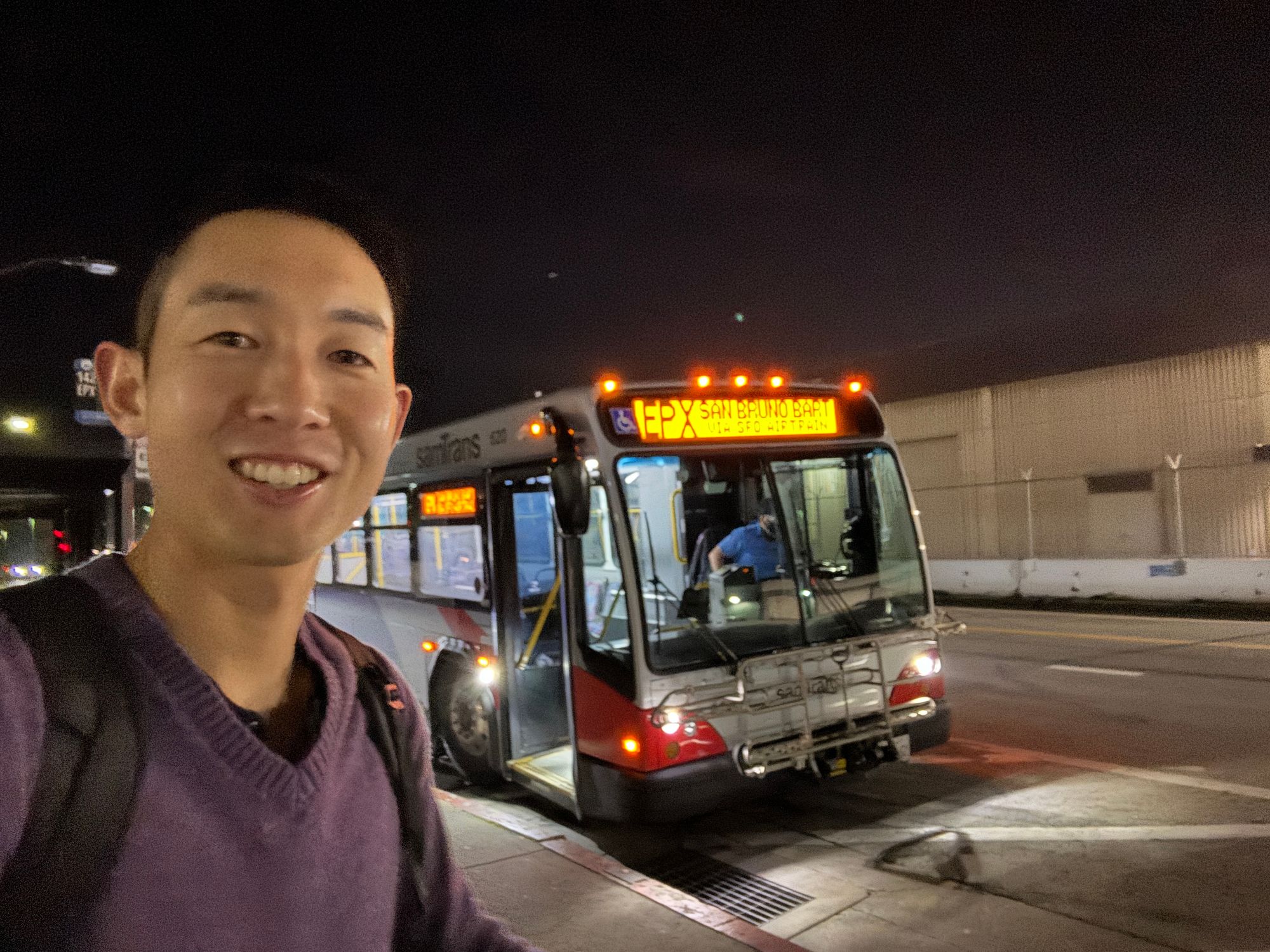
SamTrans US-101 Express Bus Feasibility Study
I think EPX is a big deal not only because it offers a great express connection for East Palo Alto residents to SFO and San Bruno BART, but also because it is only the second SamTrans bus route that runs on the Highway 101 express lanes. Kate Christopherson, principal planner at SamTrans, informed me about the SamTrans US-101 Express Bus Feasibility Study (completed in 2018) which I read in its entirety. Here are some things I learned:
- SamTrans used to have express buses that ran on Highway 101 before the 2008 Great Recession, which then resulted in the system being scaled down to zero express buses.
- SamTrans started this US-101 Express Bus Feasibility Study in 2017 to study which potential express buses to implement.
- The study recommended 12 lines, and EPX is loosely based on "Route 2" in the study.
- Route 2 was originally envisioned to start from Sunnyvale and also get off US-101 to serve Mountain View and Redwood Shores, in addition to East Palo Alto and Redwood City. EPX is much more streamlined as it only serves East Palo Alto and Redwood City before reaching SFO and San Bruno BART.
- The study's estimations of all metrics for Route 2 - boardings per revenue hour, cost per mile, etc - were all based on this expanded route. Hence, I expect EPX to have lower - probably much lower - metrics.
- Route 2 did score highly based on the evaluation criteria, which is probably a major reason why EPX was implemented after FCX (Foster City Express) in 2019.
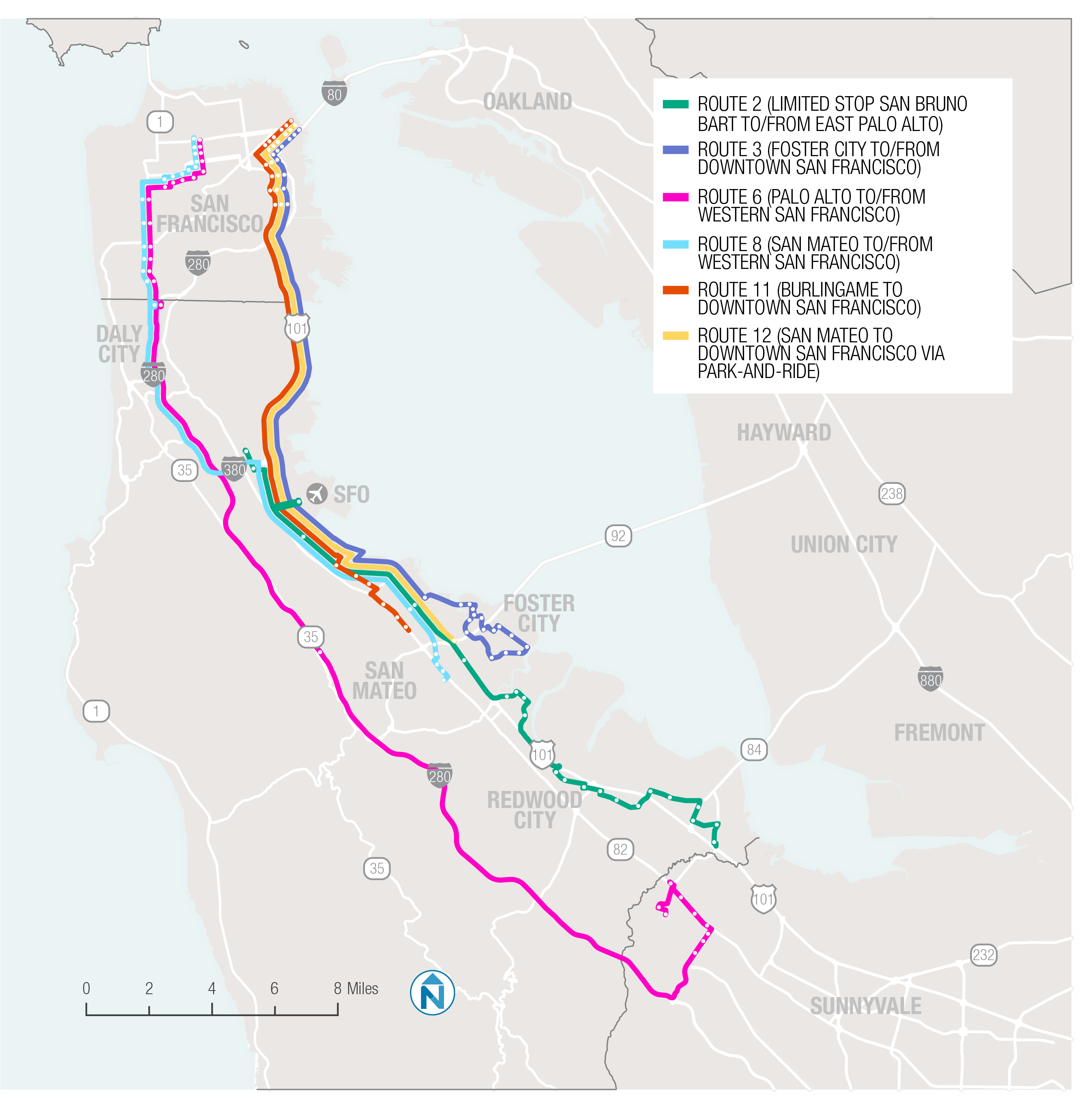
The Study Underestimates Menlo Park M-2 Area Demand
The 2017-commissioned study's traffic model(s) were based on existing travel data sourced from Streetlight Data. The limitation here is that they were based on historical data rather than future-looking data. As a result, the study does not account for a lot of new ridership demand that will come from almost a thousand new apartment units being constructed in the Menlo Park M-2 Area (the area northwest of Menlo Park's Belle Haven neighborhood). The M-2 Area Zoning was adopted in November 2016 and the housing units are wrapping up construction now, 7 to 8 years later.
What I am trying to say is that demand for EPX will grow. EPX will also connect East Palo Alto residents to Menlo Park M-2 Area. I personally go to M-2 at least once per month. It has a very nice Bedwell Bayfront Park, is accessible by bike along the San Francisco Bay Trail, has free electric charging on Meta's offices there, and has a great restaurant at Hotel Nia. And this is all without housing yet. Once there is housing, I would totally expect there to be a grocery store there soon - though I am not aware of specific for that yet. It will become a bigger destination draw for East Palo Alto residents.
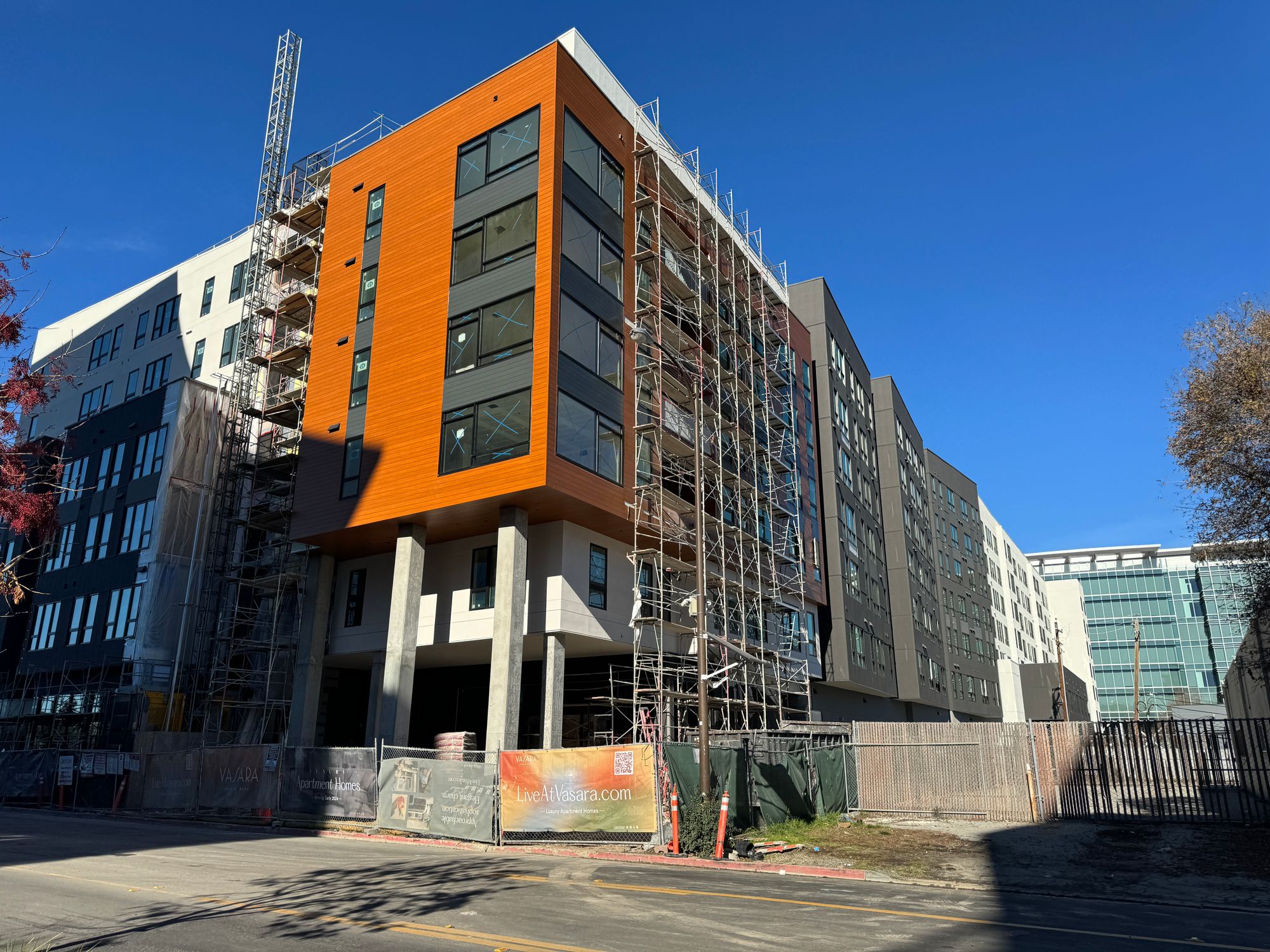
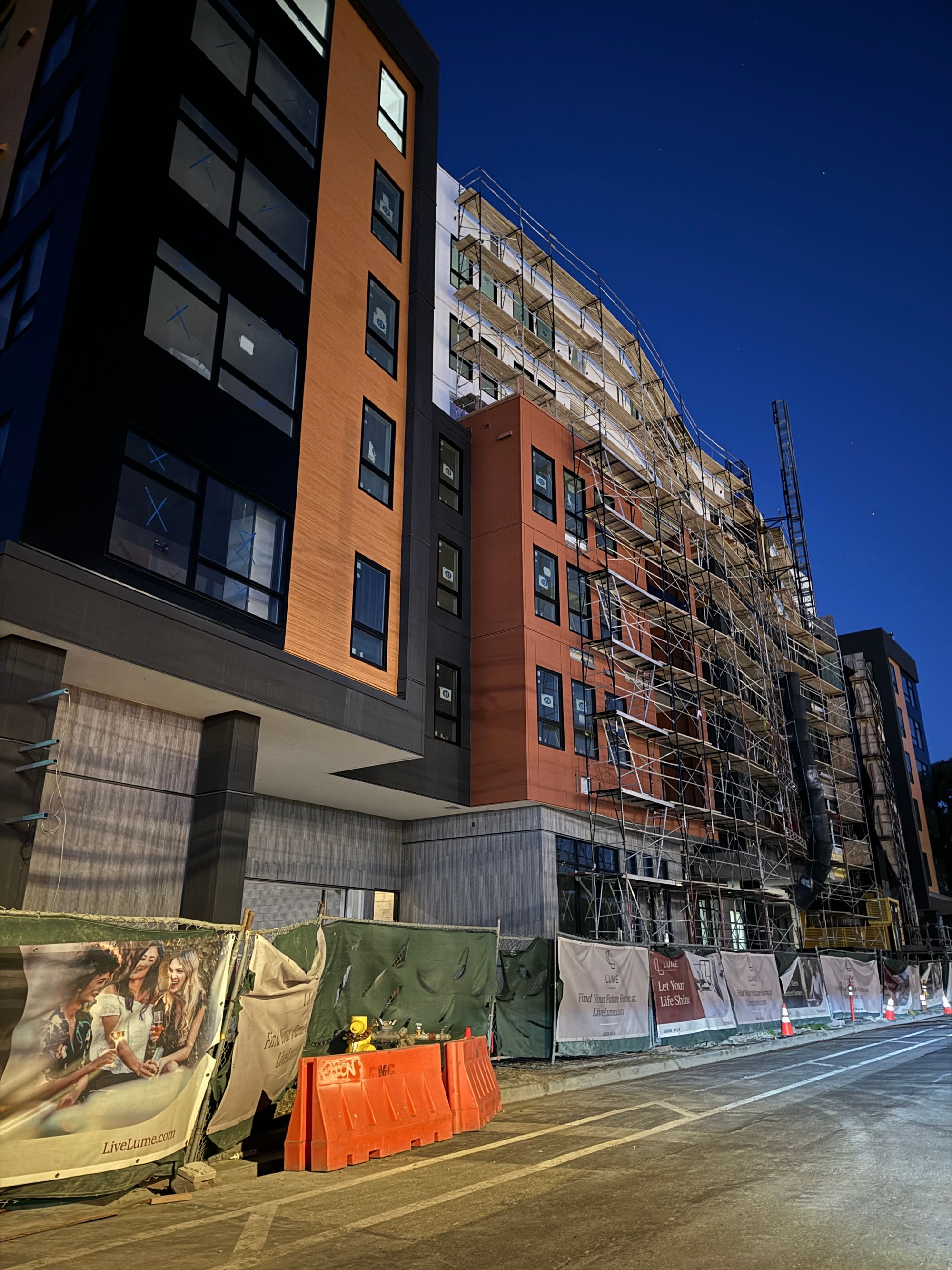
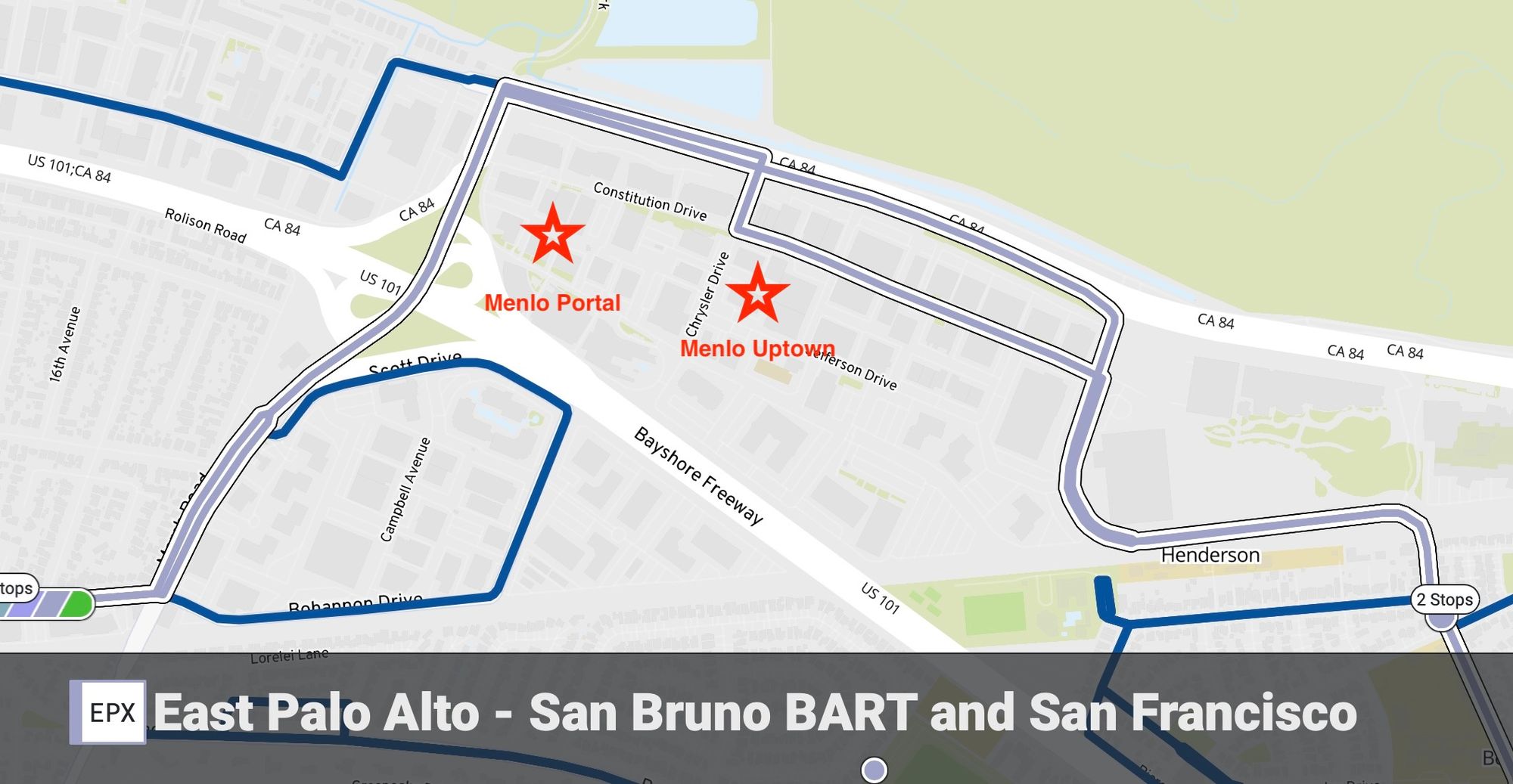
There is currently no EPX stop directly near Menlo Portal and Menlo Uptown, and I can totally imagine there being a stop there once those housings are built. We're talking 800+ housing units, plus the new CitizenM Hotel, and several more proposed / approved housing projects in the M-2 Area.
East Palo Alto's Ravenswood Specific Plan Update project is somewhat similar in scale to Menlo Park's M-2 Area Zone. They're both around 2 - 3 million square feet of office with 1,000 or so housing units (East Palo Alto's is admittedly less housing though due to land contamination deed restrictions). If East Palo Alto's RBD specific plan update is approved by end of this year in 2024, that would place us around 8 years after Menlo Park approved its M-2 Area. History repeats itself and I totally imagine RBD being a "mirror" image of M-2 in the future. EPX is the start of transportation infrastructure which connects these 2 hotspots of mixed-use, higher-density development.
Future BRT (Bus Rapid Transit) Along Dumbarton Rail Right of Way
Speaking of transportation infrastructure which will connect the Ravenswood Business District and Menlo Park M-2 Area, I think the next iteration will likely be a future SamTrans BRT (Bus Rapid Transit) between University Ave & Dumbarton Rail and Redwood City which would have a stop near US-101 & Dumbarton Rail. I learned from a SamTrans strategic planner that SamTrans will likely be kicking off another study on the Dumbarton Rail corridor (following its 2017 and 2019 studies which studied cross-bay transportation), but this time only focused on the Peninsula side. It seems that the cross-bay idea has become prohibitively expensive, so it has made more sense to look at BRT options on only one the Peninsula side. I support BRT after seeing how amazing it runs in Pittsburgh, PA. It can be as fast as a subway on a dedicated right of way outcompeting cars, without having to go into a dingy underground basement, while having beautiful scenic above-ground views. And BRT is only 1/5th or so the construction cost of light rail.
I plan to write more on the BRT idea in a future post.
Future US-101 Express Buses Will Not Benefit East Palo Alto Much
I completely support adding more US-101 express buses, especially since that is the way to capture the benefit of converting HOV lanes to express lanes on Highway 101. The idea is that buses can travel for free in the express lanes, so people should be more incentivized to take transit since the bus can theoretically get them to their destination faster than a car which is stuck in traffic in a non-express lane, and cheaper compared to a car that would have to pay the toll to drive in the express lane.
The other 10 routes recommended in the study have not been implemented yet; only FCX and EPX are live now. I also have not seen any mention on Reimagine SamTrans of any of these other express routes being on the way. These other routes do not go near East Palo Alto - the closest ones are to Palo Alto which is 4 miles away - so I am not as excited about these routes. But I am definitely looking forward to seeing more buses utilizing the express lanes.
Random Ideas
I also have so many other ideas that I do not have enough comprehensive thoughts on to write sections, so I will bullet-point them here.
- EPX is now the 5th bus stop at University & Bay Rd (northwest and southwest corners). We should totally have a transportation hub. The Taqueria El Jarocho site at 2395 University Ave has been listed for sale for several months now. The lot is smaller, but it is the ideal corner for a bus loading / transfer zone.
- I have mainly been thinking about EPX as "How can EPX get me out of East Palo Alto?" but it must also have some demand from people to get to East Palo Alto. Because EPA is largely a bedroom community, it has been harder to imagine this. But keep in mind that when lots like Four Corners are developed, EPX can become a way to bring residents of other cities to our new amenities.
- I would really like to know how many EPA residents work at SFO / near SFO. EPX would benefit them the most since they would be using it every day - presumably twice per day.
- Regarding San Bruno BART, I am really curious how many EPA residents will take the EPX to there and then transfer to the BART. Or just to get to San Bruno.
- The EPX stops in Redwood City, but it takes a different route than the existing Route 296. EPX goes along the part of Redwood City closer to Highway 101 where Stanford's Redwood City campus is. This is a big job center and SamTrans had shared with me that Streetlight data has been showing an increase in 30% in local trips between East Palo Alto and Redwood City, compared to pre-pandemic levels. I have talked to some EPA residents and we do not know why this is the case, but if it has anything to do with the Stanford Redwood City campus, then EPX can help to alleviate these vehicle trips.
